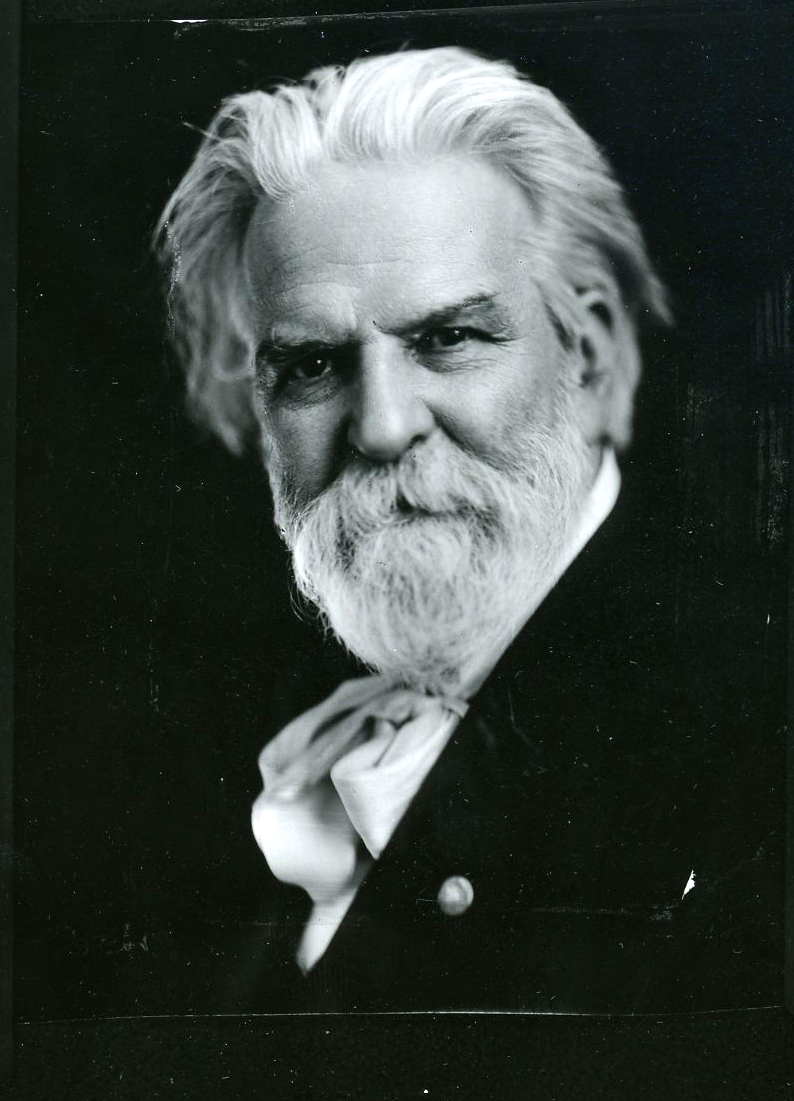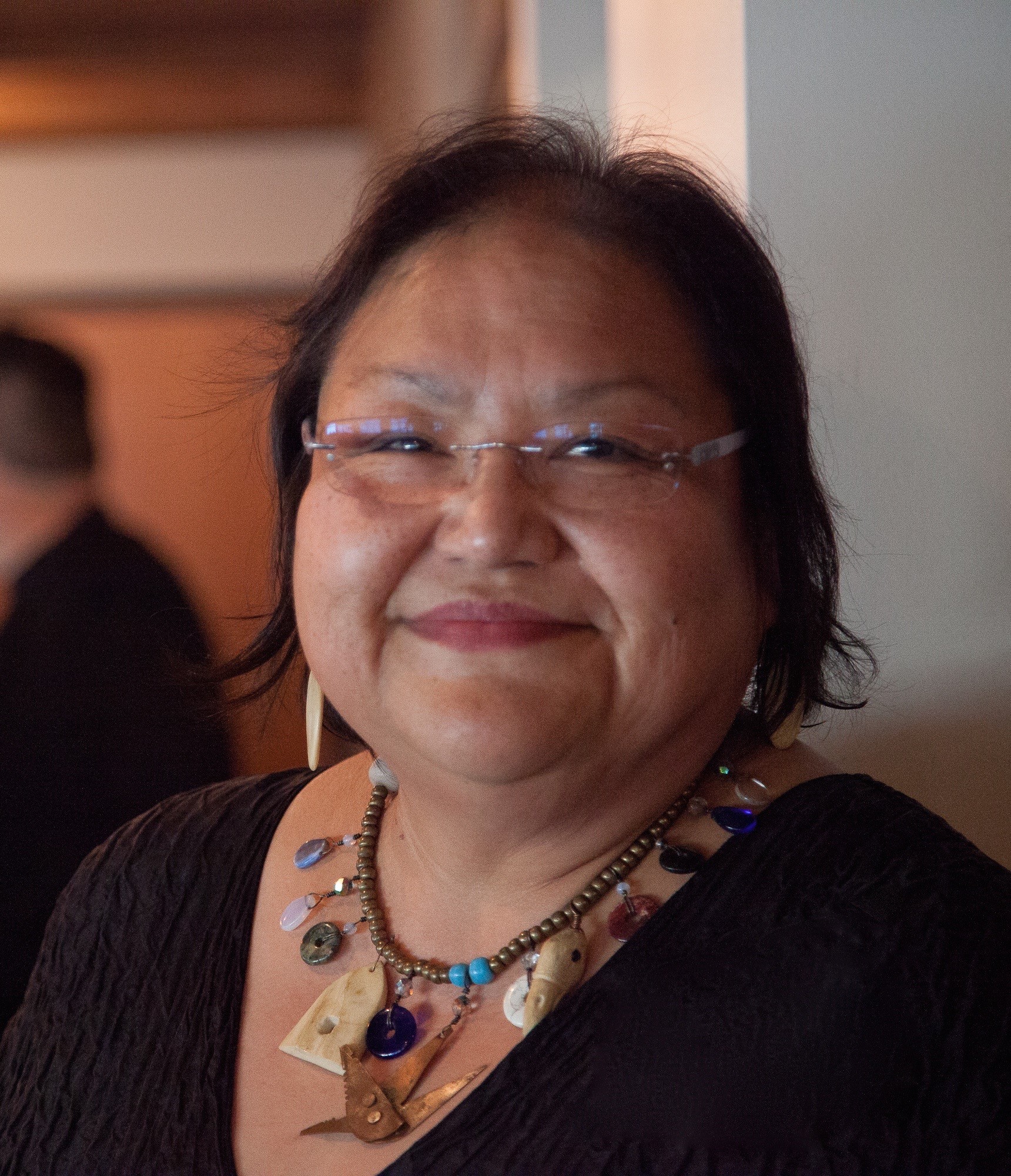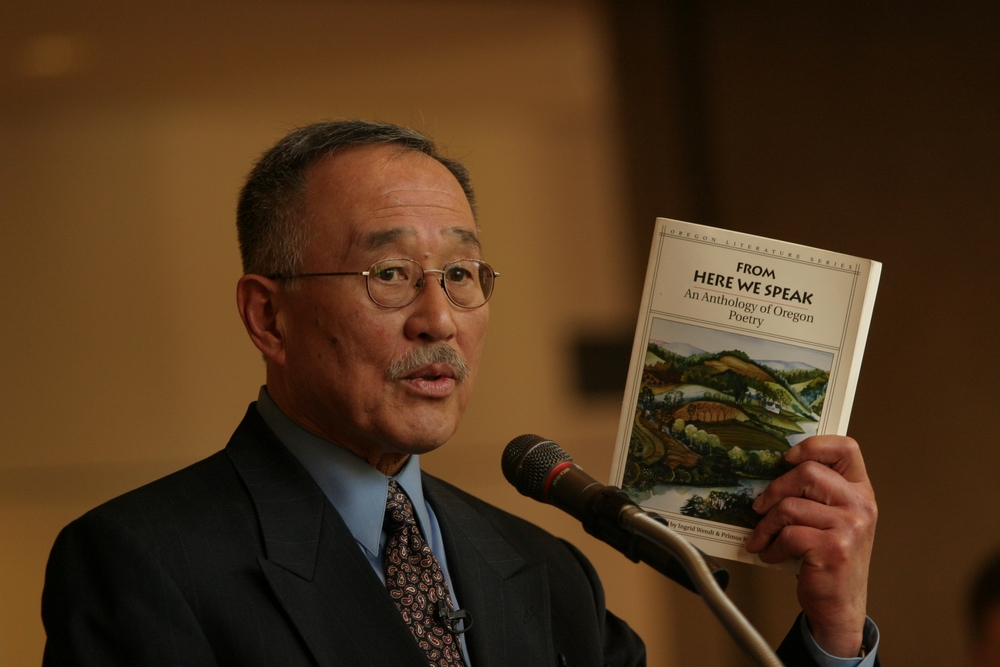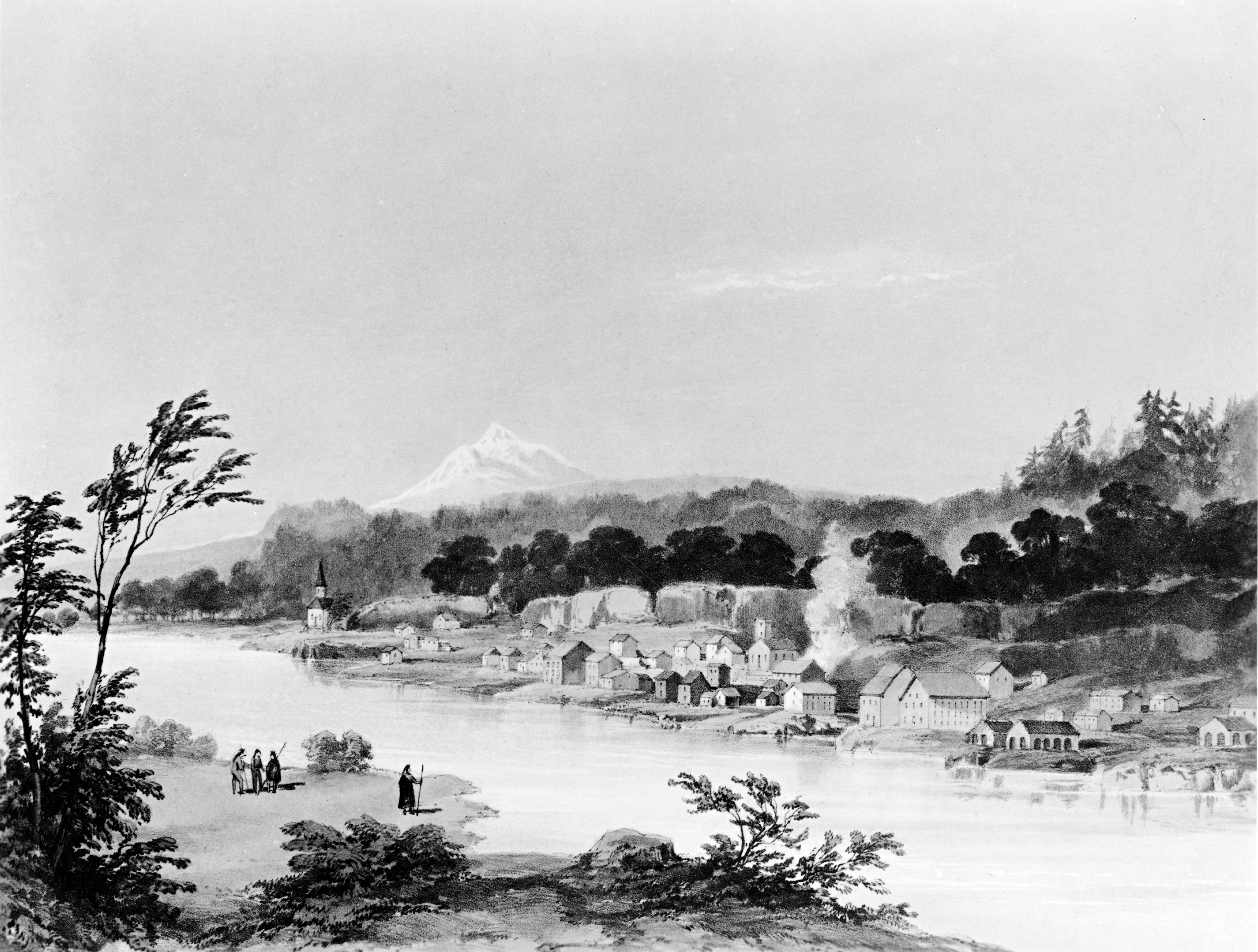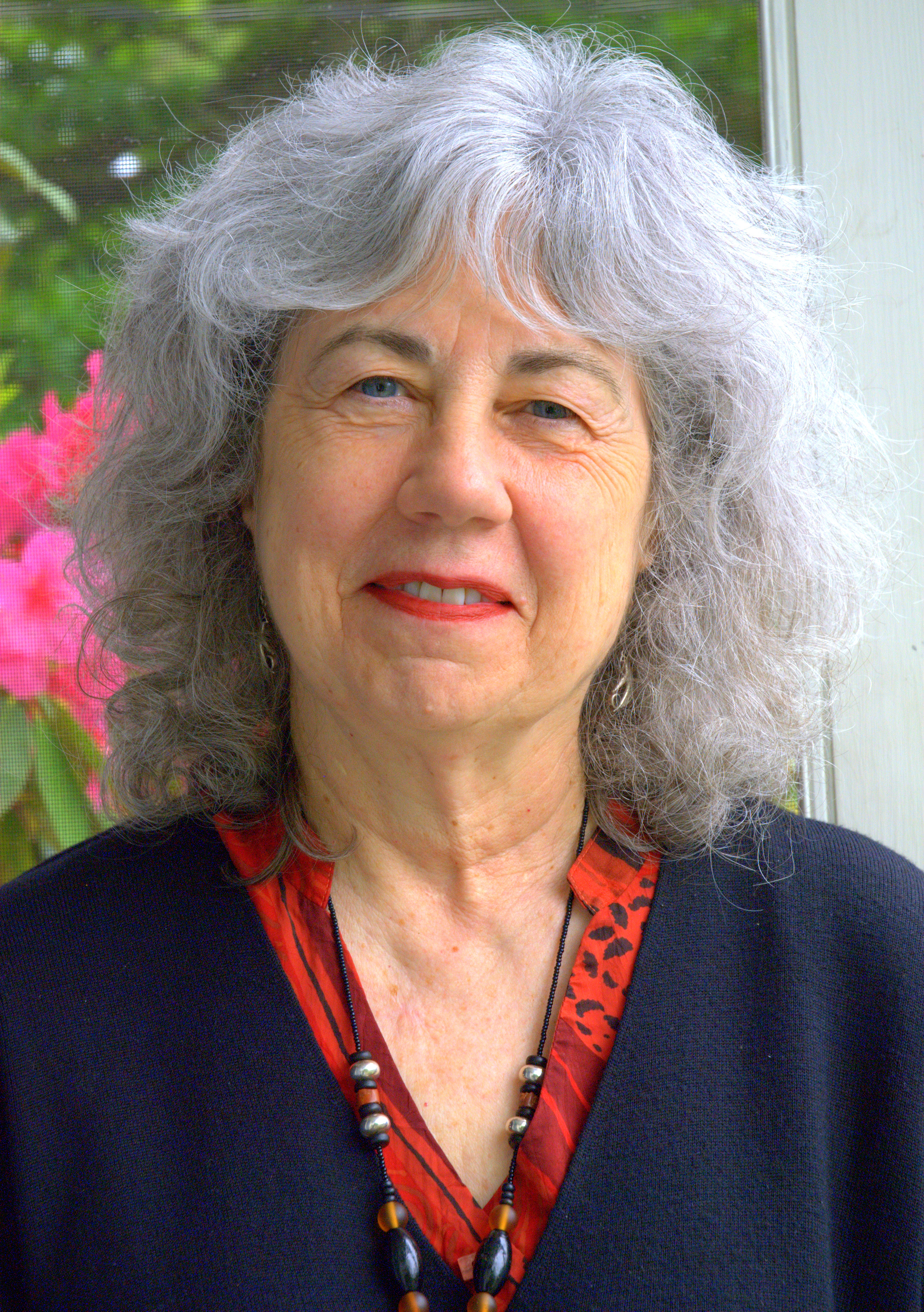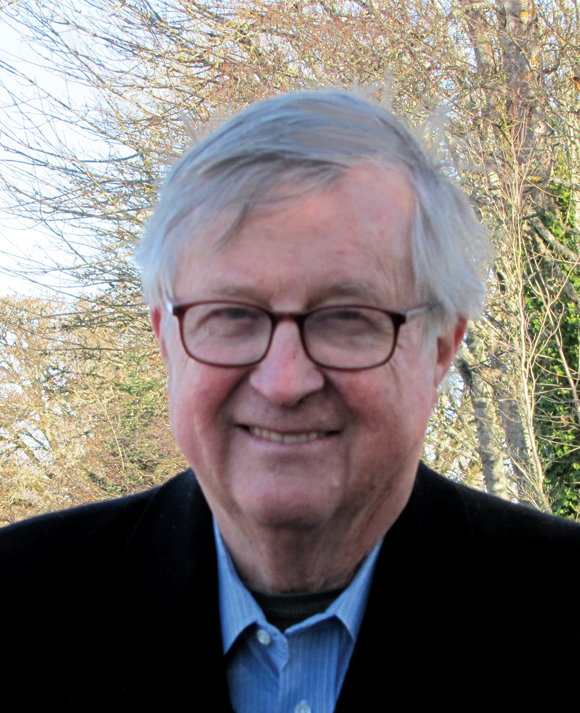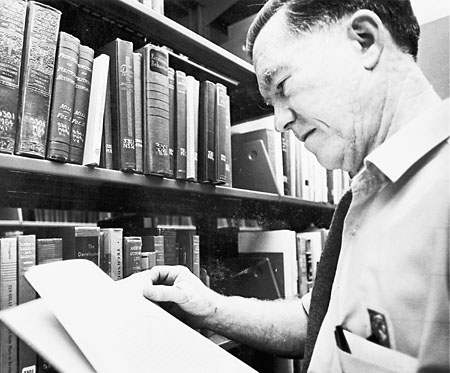Throughout most of his life, Edwin Markham was known as the Dean of American Poetry, the Laureate of Labor, and—in his own words—the Poet Highwayman. His work as a poet and social reformer brought him recognition throughout the West and across the United States. He founded the Poetry Society of America in 1910 and served as Oregon’s first poet laureate, from 1923 to 1931.
Born in Oregon City on April 23, 1852, Markham grew up on a farm, which provided him with many of the images and themes that would appear in his poetry. His childhood was colored by an absent father and an oppressive mother, Elizabeth Winchell Markham. Reportedly, Markham ran away when he was fifteen years old in reaction to his mother’s spitefulness and the limits she put on his education. He later claimed to have fallen in with a highwayman, with whom he lived a life of crime for several months before entering California College in 1868.
After earning a teaching certificate in 1870, Markham began several decades of working in schools, earning a position as a county superintendent in Placerville, California in 1879. Although he published his poems in newspapers and magazines in the 1880s and 1890s, it was not until the turn of the twentieth century that he achieved national recognition.
Markham is best known for “The Man with the Hoe,” a work that sparked significant controversy after it was first published in the San Francisco Examiner in January 1899. Based on a painting by French artist Jean Francois Millet entitled Man with a Hoe, Markham’s poem was seen as a commentary on the plight of the working class and became an anthem for the American labor movement. Over the years, the poem appeared in over ten thousand periodicals and in at least forty languages. It was considered so powerful that railroad magnate Collis Huntington pledged $5,000 for a work that would counter Markham’s inflammatory verse—an offer that was never met.
While “The Man with the Hoe” brought Markham fame as a social reformer, much of his work dealt with romantic themes. He was influenced by Ambrose Bierce, who preferred Markham’s more idealistic poetry. Bierce denounced Markham's radicalism, charging that he was “spreading that gospel of hate known as ‘industrial brotherhood’.” Literary critic and novelist Hamlin Garland, who Markham met in Chicago in 1893, also shaped his literary development. Unlike Bierce, Garland admired Markham’s progressive and reformist pieces and encouraged greater realism in his friend’s work.
Markham’s personal life was marked by troubled relationships. He married Annie Cox in 1875, but the couple divorced in 1884. In 1887, Markham married Caroline Bailey, who left him after Markham’s mother joined their household. His third marriage, to Anna Catherine Murphy in 1898, proved more successful. Anna, a teacher, served as Markham’s editor and collaborator and encouraged his work on “The Man with the Hoe.”
Although Markham never again experienced the critical acclaim “The Man with the Hoe” won him, he was increasingly prolific after its release, publishing The Man with the Hoe and Other Poems in 1899 and Lincoln and Other Poems in 1901. He became more involved in reform work and wrote muckraking articles on child labor for his friend Bailey Millard, editor of Cosmopolitan. In 1914, he co-authored Children in Bondage. On May 30, 1922, Markham read his poem Lincoln, the Man of the People at the dedication of the Lincoln Memorial in Washington, D.C.
On March 7, 1940, Markham died at his home on Staten Island, New York, destined, in the eyes of biographer and politician Leonard D. Abbott, to be remembered as the “first real poet of labor.”
-
![]()
Edwin Markham, 1921.
Courtesy Oreg. Hist. Soc. Research Library, 012646
-
![]()
Edwin Markham, poet, who dedicated a poem to the Lincoln Memorial, 1922.
Courtesy Library of Congress Prints and Photographs. https://lccn.loc.gov/2002697219/.
Related Entries
-
![Elizabeth Woody (1959-)]()
Elizabeth Woody (1959-)
Poet and artist Elizabeth Woody was named Oregon Poet Laureate in 2016,…
-
Lawson Fusao Inada (1938-)
Poet, writer, and educator, Lawson Fusao Inada is an emeritus professor…
-
![Oregon City]()
Oregon City
Oregon City was the first incorporated city west of the Rocky Mountains…
-
![Paulann Petersen (1942-)]()
Paulann Petersen (1942-)
Paulann Petersen, Oregon’s sixth Poet Laureate, is an award-winning poe…
-
![Peter H. Sears (1937–2017)]()
Peter H. Sears (1937–2017)
Peter H. Sears, a poet and educator, served as Oregon Poet Laureate fro…
-
![William Stafford (1914-1993)]()
William Stafford (1914-1993)
William Stafford, one of America’s most widely read poets, was born in …
Map This on the Oregon History WayFinder
The Oregon History Wayfinder is an interactive map that identifies significant places, people, and events in Oregon history.
Further Reading
Duncan, Charles. "Edwin Markham." In Nineteenth-Century American Western Writers, edited by Robert L. Gale. Detroit: Gale Research, 1997.
Filler, Louis. The Unknown Edwin Markham. Antioch Press: Yellow Springs, Ohio, 1966.
Stidger, William L. Edwin Markham. Abingdon Press: New York, 1933.

